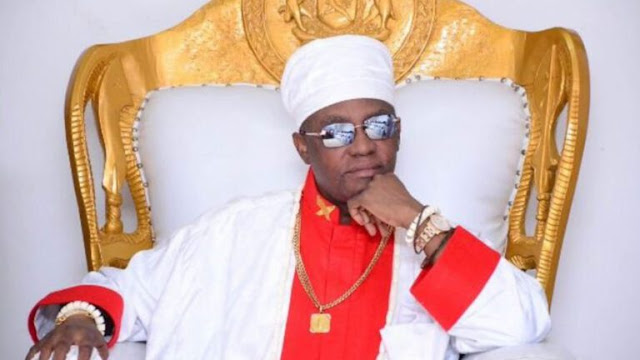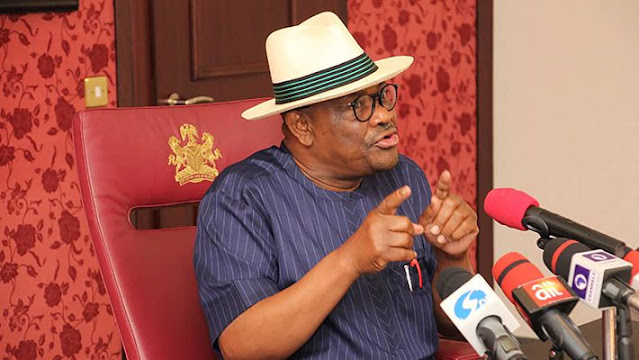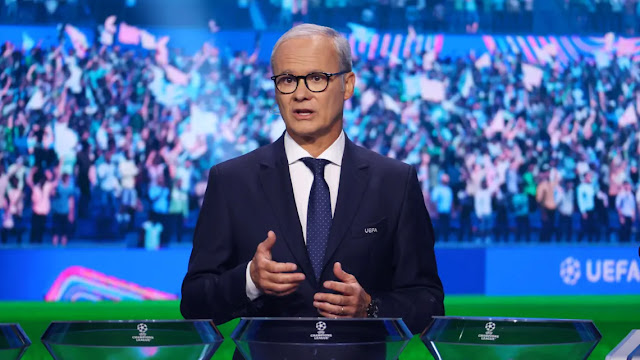In a significant development within the revered Benin Kingdom, the Benin Traditional Council (BTC) has announced the immediate suspension of two prominent chiefs from the palace of His Royal Majesty, Omo N’Oba N’Edo Uku Akpolokpolo, Ewuare II, the Oba of Benin. The announcement, made public on Thursday, August 28, 2025, was formalized through a statement signed by Mr. Frank Irabor, the Secretary of the Benin Traditional Council. The suspended chiefs are Chief John Igiehon, who holds the title of Izuwako of Benin, and Chief Aimuiukpomonyako Oghogho, known as the Oyenmwensoba of Benin. This decision, approved by the Oba himself, has sparked discussions about the roles, responsibilities, and expectations of traditional titleholders within the Benin Kingdom, a cultural institution renowned for its rich history and enduring traditions.
The suspension, which takes effect immediately, was attributed to the prolonged absence of the two chiefs from their palace duties, leading to their failure to fulfill the responsibilities associated with their prestigious titles. The statement from the BTC emphasized the importance of loyalty, dedication, and active participation in palace activities as prerequisites for holding such esteemed positions. It also issued a stern warning to the public to exercise caution when engaging with individuals claiming to represent the palace, particularly those described as “unscrupulous chiefs” who are no longer in active service. This article delves into the details of the suspension, the cultural and historical context of the Benin Kingdom, the roles of chiefs within the palace hierarchy, and the broader implications of this development for the traditional institution.
The Announcement and Its Immediate Context
The Benin Traditional Council, the authoritative body responsible for overseeing traditional governance and cultural affairs in the Benin Kingdom, issued the suspension notice as a formal declaration of the Oba’s decision. According to Mr. Frank Irabor, the Secretary of the BTC, the suspension of Chief John Igiehon and Chief Aimuiukpomonyako Oghogho was necessitated by their prolonged absence from the palace, which has hindered their ability to carry out their designated roles. While the statement did not provide specific details about the duration of their absence or the exact nature of their responsibilities, it underscored the importance of active participation in palace functions as a core expectation for chiefs.
The titles of Izuwako and Oyenmwensoba are significant within the Benin Kingdom’s traditional hierarchy, each carrying specific duties tied to the cultural, administrative, and ceremonial operations of the palace. The Izuwako of Benin, for instance, is a title associated with specific advisory or ceremonial roles, while the Oyenmwensoba is linked to responsibilities that may involve community leadership or representation of the Oba’s authority in certain contexts. The precise nature of these roles varies, but they are integral to the smooth functioning of the palace and the broader Benin society.
The BTC’s statement also included a cautionary note to the public, advising vigilance when dealing with individuals who may falsely claim to represent the palace. This warning suggests that the suspension may have been prompted not only by the chiefs’ absence but also by concerns about potential misuse of their titles or authority. By publicly announcing the suspension and disassociating the chiefs from active palace duties, the BTC aims to maintain the integrity and credibility of the traditional institution.
The Cultural and Historical Significance of the Benin Kingdom
To fully appreciate the implications of this suspension, it is essential to understand the historical and cultural significance of the Benin Kingdom and the role of the Oba and his chiefs. The Benin Kingdom, located in present-day Edo State, Nigeria, is one of the oldest and most respected traditional institutions in Africa. Its history dates back over a millennium, with a lineage of Obas (kings) who have served as both spiritual and temporal leaders of the Benin people. The kingdom is renowned for its sophisticated political system, intricate art, and enduring cultural practices, many of which are preserved in the palace of the Oba.
The Oba of Benin is not merely a traditional ruler but a symbol of the Benin people’s identity, history, and continuity. The current Oba, Ewuare II, ascended the throne in 2016, continuing a legacy that traces back to the reign of Ewuare I in the 15th century, a period marked by significant political and cultural advancements. The palace serves as the epicenter of Benin culture, where traditions, governance, and spirituality converge. Chiefs, appointed by the Oba, play critical roles in maintaining this system, acting as advisors, administrators, and custodians of tradition.
The titles conferred upon chiefs, such as Izuwako and Oyenmwensoba, are not merely honorific but come with substantial responsibilities. Chiefs are expected to be present at palace ceremonies, participate in traditional councils, and represent the Oba in various capacities within the community. Their roles often involve mediating disputes, preserving cultural practices, and ensuring the Oba’s directives are implemented. Absence from these duties, as cited in the suspension, is considered a serious breach of protocol, as it undermines the palace’s ability to function effectively and maintain its authority.
The Role of Chiefs in the Benin Traditional System
The Benin Kingdom operates a hierarchical system of governance, with the Oba at the apex and various categories of chiefs serving under him. These chiefs are organized into different cadres, including the Palace Chiefs, the Uzama (a group of hereditary chiefs), and other titled chiefs with specific roles. The Palace Chiefs, to which the suspended chiefs likely belong, are directly appointed by the Oba and are responsible for day-to-day activities within the palace and the broader kingdom.
The suspension of Chief John Igiehon and Chief Aimuiukpomonyako Oghogho highlights the expectations placed on these titleholders. Their prolonged absence, as noted by the BTC, suggests a failure to engage in the activities that define their roles. These activities may include attending palace meetings, participating in traditional festivals such as the Igue Festival, or representing the Oba at community events. In the Benin tradition, such responsibilities are not optional but are seen as sacred duties tied to the honor of serving the Oba and the kingdom.
The BTC’s reference to “unscrupulous chiefs” further suggests that the suspension may be linked to broader concerns about the conduct of some titleholders. In recent years, there have been instances across Nigeria where individuals have misused traditional titles for personal gain or to exert undue influence. By suspending the two chiefs and issuing a public warning, the BTC is signaling its commitment to upholding the integrity of the palace and ensuring that only those actively fulfilling their roles represent the Oba’s authority.
Implications of the Suspension
The suspension of the two chiefs carries significant implications for both the individuals involved and the broader Benin Kingdom. For Chief John Igiehon and Chief Aimuiukpomonyako Oghogho, the suspension represents a loss of status and influence within the traditional system. While the statement does not specify whether the suspension is permanent or temporary, such actions typically require the affected individuals to address the issues leading to their suspension—such as resuming active participation or seeking the Oba’s forgiveness—before reinstatement can be considered.
For the Benin Kingdom, the suspension reinforces the Oba’s authority and the BTC’s role as a guardian of tradition. It sends a clear message to other chiefs and titleholders that dereliction of duty will not be tolerated, regardless of one’s status. This move also underscores the importance of accountability within the traditional system, ensuring that the palace remains a respected institution that upholds the values of discipline, loyalty, and service.
Moreover, the public warning about “unscrupulous chiefs” highlights the BTC’s efforts to protect the public from potential exploitation. In many African societies, traditional titles carry significant social capital, and individuals may use such titles to gain favor, secure contracts, or influence community decisions. By publicly disassociating the suspended chiefs from active palace duties, the BTC is safeguarding the reputation of the Oba and the kingdom.
Broader Context: Challenges Facing Traditional Institutions
The suspension of the two chiefs also reflects broader challenges facing traditional institutions in Nigeria and across Africa. As modernization, urbanization, and globalization reshape societies, traditional systems often struggle to maintain relevance while upholding their core values. Chiefs, who serve as intermediaries between the Oba and the community, must navigate a complex landscape where traditional duties coexist with modern expectations.
In some cases, chiefs may find it difficult to balance their palace responsibilities with personal or professional commitments, especially if they reside outside the Benin Kingdom or are engaged in careers that demand significant time. The prolonged absence cited in the suspension may reflect such challenges, raising questions about how traditional institutions can adapt to contemporary realities without compromising their principles.
Additionally, the issue of “unscrupulous chiefs” points to the broader problem of title abuse, a phenomenon not unique to the Benin Kingdom. Across Nigeria, there have been instances of individuals acquiring traditional titles through questionable means or using their positions for personal enrichment. The BTC’s proactive stance in addressing this issue demonstrates its commitment to maintaining the sanctity of the Benin traditional system.
Public Reaction and Future Outlook
While the BTC’s statement did not provide details about the specific circumstances leading to the suspension, the announcement is likely to generate significant interest and discussion within the Benin Kingdom and beyond. The public, particularly those in Edo State, may view the suspension as a necessary step to uphold the integrity of the palace, while others may seek further clarity on the reasons behind the chiefs’ absence.
The suspension also raises questions about the processes for appointing and monitoring chiefs within the Benin Kingdom. While the Oba has the authority to appoint and remove chiefs, the BTC plays a critical role in ensuring that titleholders adhere to their responsibilities. Future developments may include mechanisms to prevent prolonged absences or to provide support for chiefs facing challenges in fulfilling their duties.
Looking ahead, the suspension serves as a reminder of the enduring relevance of the Benin Kingdom’s traditional institutions. Despite the challenges posed by modernity, the palace remains a vital institution that shapes the cultural and social fabric of the Benin people. The Oba’s authority, as demonstrated through this decision, underscores his role as a custodian of tradition and a symbol of unity.
Conclusion
The suspension of Chief John Igiehon, the Izuwako of Benin, and Chief Aimuiukpomonyako Oghogho, the Oyenmwensoba of Benin, by the Benin Traditional Council is a significant event that highlights the importance of duty, loyalty, and accountability within the Benin Kingdom’s traditional system. Approved by His Royal Majesty, Omo N’Oba N’Edo Uku Akpolokpolo, Ewuare II, the suspension reflects the Oba’s commitment to maintaining the integrity of the palace and ensuring that chiefs uphold their responsibilities.
By addressing the prolonged absence of the two chiefs and issuing a warning about “unscrupulous chiefs,” the BTC is taking proactive steps to protect the reputation of the palace and the broader Benin Kingdom. This development also underscores the challenges facing traditional institutions in a rapidly changing world, where the demands of modernity must be balanced with the preservation of cultural heritage.
As the Benin Kingdom continues to navigate these challenges, the suspension serves as a reminder of the enduring significance of its traditions and the pivotal role of the Oba in upholding them. The public will be watching closely to see how this situation unfolds and what it means for the future of the palace and its chiefs.






